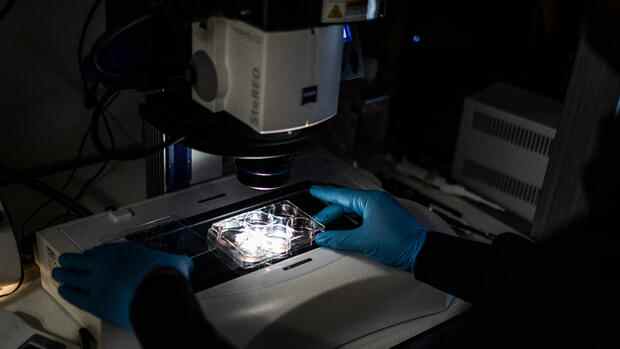Berlin For many years, business has been pushing for tax incentives for research in order to promote innovation. The research allowance has been available since 2020 – but for large parts of the economy it seems to be more of a slow seller than an attractive support. This shows a DIHK survey of 600 companies, which is available to the Handelsblatt. After that, demand is “far below expectations”.
“More innovations favor a more resilient economy. This is urgently needed in view of the crises. Tax incentives for research can be an important lever here. Unfortunately, there is still a lot of room for improvement,” comments DIHK Executive Board member Ilja Nothnagel on the results. “Almost every second company that has applied for funding rates the two-stage application process as bureaucratic, and every fifth even as very bureaucratic.”
Small and medium-sized companies in particular are reluctant to apply – and thus precisely the group that the federal government wants to promote with the Research Allowance Act. Large companies are expected not to subject innovation spending to an allowance. In contrast, the contribution made by SMEs to innovations has been declining for many years.
So far, only half of the innovative companies are aware of the new allowance. A good quarter of the larger companies with more than 500 employees do not know them – in the small companies more than 60 percent.
Top jobs of the day
Find the best jobs now and
be notified by email.
Overall, they have only applied for four out of ten research-related companies. Here, too, there is a gap between large and small: While more than half of companies with 500 or more employees have already submitted an application, this is only one in five of smaller companies with up to 50 employees. The bottom line is that the new funding is only partially successful in “consolidating research and development in German companies and initiating new innovations,” said Nothnagel. Therefore, the instrument must be made better known and easier to use – also by the IHKs themselves.
Bureaucracy discourages companies
A third of the companies cited the deterrent bureaucracy as the reason for their reluctance. In order to apply for the allowance from the tax office, a certificate must first be obtained from the responsible central office that the expenses are eligible.
In addition, one in four companies is unsure whether their spending on new products or processes is eligible for funding at all. According to the survey, there is also confusion about the advantages of the allowance compared to traditional direct project funding, above all via the Ministry of Economic Affairs. Since both grants cannot be applied for at the same time, many waived the tax bonus.
This is in contrast to the high expectations: for many years, not only business associations but also economists and innovation researchers have been pushing for the introduction of a tax bonus in Germany, which has long been common in many OECD countries. According to the DIHK survey, more than three quarters of the companies themselves expect to see a reduction in their costs for R&D projects. In medium-sized companies with up to 250 employees, it is even eight out of ten companies. More than every second company also wants to use it to expand its own research and development – the proportion is even slightly higher in medium-sized companies.
A “surprisingly positive result” from the survey is that the certificate that there is an eligible research and development project helps every tenth SME with up to 250 employees with external company financing, writes the DIHK. The companies’ suggestions for improving the application process range from less statistical information and less documentation requirements to faster processing times in the certification office and the tax office.
>> Read here: “We are risking the next dent in innovation,” warns Michael Kaschke, President of the Stifterverband
This means that research funding does indeed have what it takes to inspire innovation in Germany. The federal government’s innovation advisors also have high hopes: “It supports the pioneers who set the direction – and helps the imitators to follow faster,” said the chairman of the expert commission for research and innovation, Uwe Cantner. He also has “great hope that the funding will encourage many companies that have not been innovative at all to dare something new for the first time. I’m very excited to see what the effect will be like.” In any case, this hope has not been fulfilled so far.
Specifically, research-based companies are entitled to an allowance of 25 percent of their wage costs for researchers. Contract research is also funded – with 25 percent based on 60 percent of the contract amount.
A maximum of two million euros can be specified – with a maximum annual research allowance of 500,000 euros. For the period from July 1, 2020 to June 30, 2026, the federal government has even increased the maximum assessment basis to four million euros annually due to the corona crisis. This means that a tax bonus of up to one million euros per year is possible.
More: The pandemic has massively damaged the innovative power of companies
